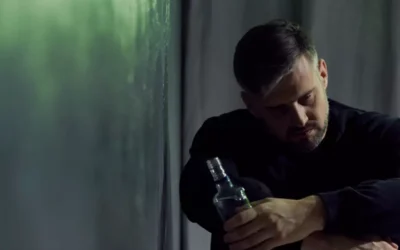Content
Unfortunately, it’s not quite as uncommon as some people may think. According to the National Institute on Alcohol Abuse and Alcoholism (NIH), approximately 14.5 million Americans aged 12 or older have alcohol use disorder. Denial of an overarching alcohol problem despite endorsement of specific alcohol-related difficulties may be central to development and continuation of alcohol use disorders (AUDs).
- Yelling at your loved one while they’re drunk or bringing up their drinking in the middle of an argument is not effective.
- Today many treatments for alcohol addiction are available and recovery is possible.
- When dealing with an alcoholic spouse in denial, it is crucial to avoid creating conditions for codependency.
- Experts recommend that you use a number of techniques to encourage entry into needed treatment.
- Instead, remain calm and have a discussion when the alcoholic is in a seemingly good mood.
- Many alcoholics in denial believe their own arguments, though no one else does.
- First, we report detailed information gathered prospectively every five years from 453 families by the same principal investigators using the same interviews and questionnaires across two generations.
Today many treatments for alcohol addiction are available and recovery is possible. The bad news is that in order to become well, the person affected must admit that a problem exisits. The first form of denial is the refusal to admit that anything is https://ecosoberhouse.com/ amiss. The person, when confronted with his/her problem drinking, may insist that drinking is a private matter and therefore none of your business. Frequently, the person will attempt to change the subject in order to halt the conversation altogether.
What does ‘high functioning’ look like?
But in other cases, they may be in denial about what is happening to them. The SRE records numbers of standard drinks required for up to four effects including a first effect, feeling dizzy or slurring speech, unstable standing, and unplanned falling asleep. SRE-5 scores for the first five times of drinking and is generated by the total drinks in that period needed across effects divided by the number of effects endorsed. SRE-T scores reflect the average across first five, heaviest drinking period, and recent 3-month drinking.
There are several signs of denial to look out for in your loved ones or in yourself. Be aware of the common forms of denial, and consider whether they are familiar to you. It cuts off the possibility of positive change, leading to a lifetime of issues with health, finances, and relationships. They might think it’s too expensive and time-consuming, or that it won’t work for them. They tell themselves that treatment is for serious addicts, and they don’t belong in that category. But if you or someone you know is showing signs of denial, don’t feel discouraged.
Reasons for denial in alcohol use disorder
These researchers argue that severe denial in the face of overwhelming evidence is consistent with cognitive impairment. If you’re seeking help for a teen, you can check out resources from the Family Resource Center or the Partnership to End Addiction. “Mental health care is critical for achieving long-term success in overcoming AUD,” says Elhaj.
These concepts are complex and likely to develop in response to widely held societal beliefs as well as mechanisms reflecting an individual’s traits regarding how they handle problems and their specific beliefs and behaviors. The denial or minimization of substance related problems interferes with decisions to seek help, impedes behavior changes, and contributes to relapses into problematic behaviors (Ferrari et al., 2008; denial in alcoholism Wing, 1996; Sher and Epler, 2004). Denial is the primary mechanism by which drug addiction, alcoholism and relapse are maintained, prolonged and worsened. In fact, some have questioned whether outright addiction could exist at all if not for a state of denial. However, denial appears to be an inseparable part of addiction and therefore must be understood in order to treat it effectively for the lifetime of the sufferer.
Fear of Losing a Child/Pet
And you might find that you feel healthier and happier without it. If your loved one is in denial or doesn’t want to seek treatment, they’re not alone. According to the 2019 National Survey on Drug Use and Health,about 14.5 million people have an AUD, and yet only 7% received treatment that year. America’s Rehab Campuses offer modern state-of-the-art alcohol treatment facilities with a wide range of inpatient and outpatient programs. The facility uses evidence-based treatments to help people on their journey to recovery.

Many people start by encouraging a spouse to talk to their primary doctor. Today, most general practitioners know how to look for alcohol use disorder. Successful detox is followed by enrollment in primary alcohol treatment. The overall goal of this treatment is helping your spouse create a lasting pattern of sobriety. The typical, modern recovery plan for alcoholism includes medication for relapse prevention.
How Executives Handle Addiction Treatment Discretely
You may have to start by setting your own boundaries and encouraging your spouse to do the same. Sarah Allen Benton, M.S., LMHC., LPC, is a licensed mental health counselor and author of Understanding the High-Functioning Alcoholic. You may even find that if you continue to press the issue, your loved one gets angry.
- When someone is addicted, their senses of logic and reason are distorted.
- Much of the literature on denial has focused on underlying mechanisms that contribute to false negative reports regarding SUDs.
- In addition to supporting your own mental health, this serves as a role model to your loved one.
- They may also be worried that if they admit they have a problem and make the decision to go to rehab, they will be fired for having to miss work.